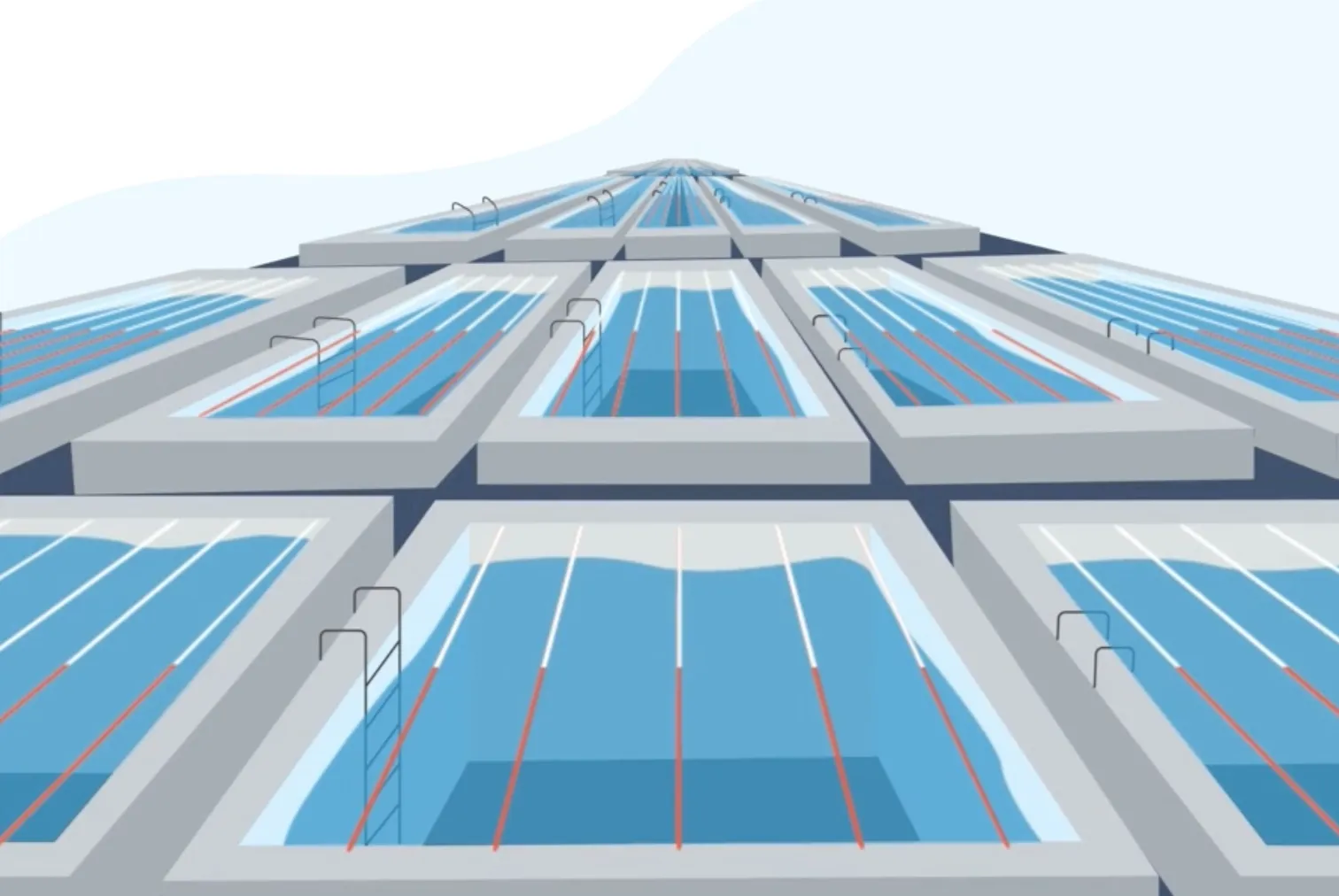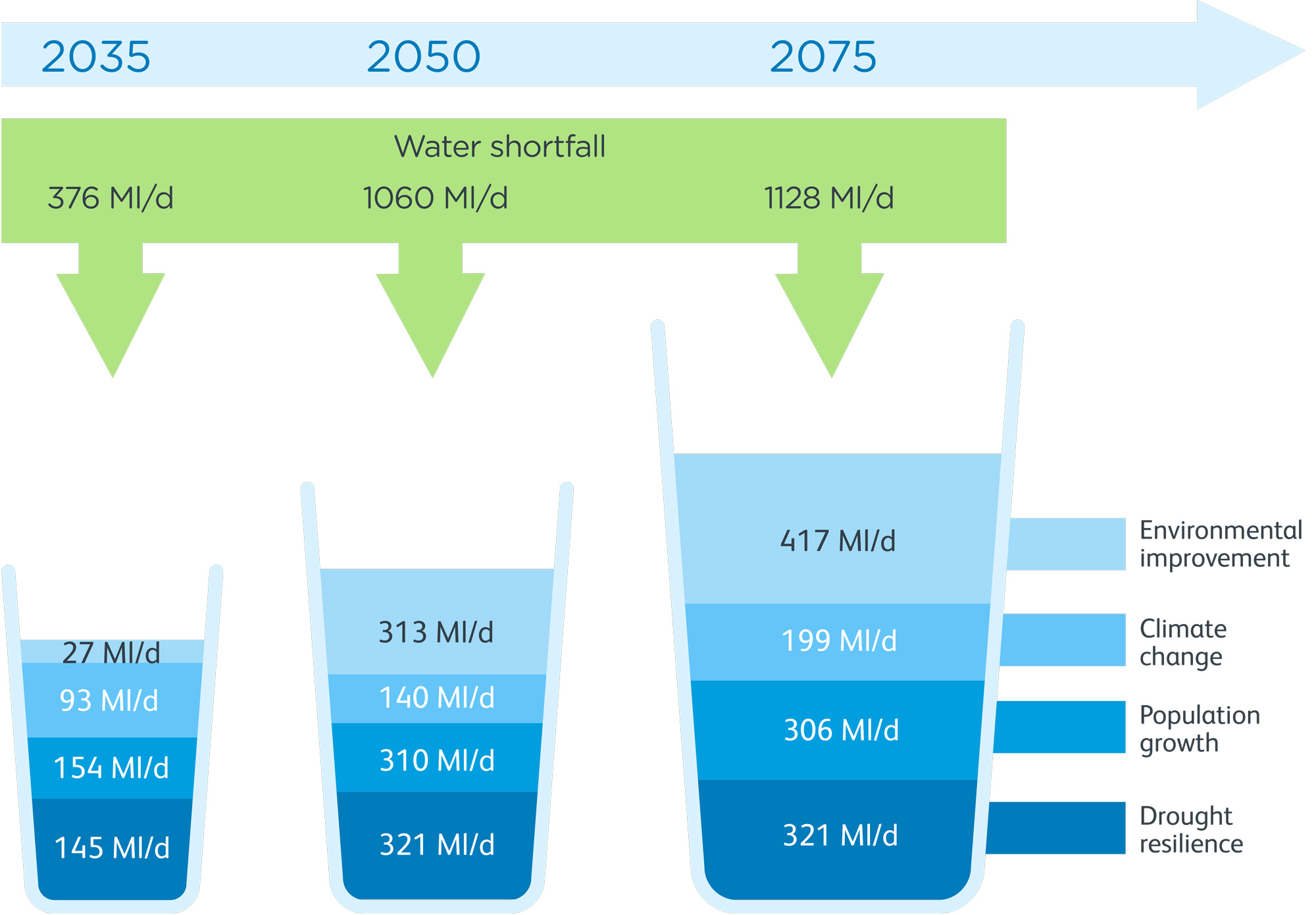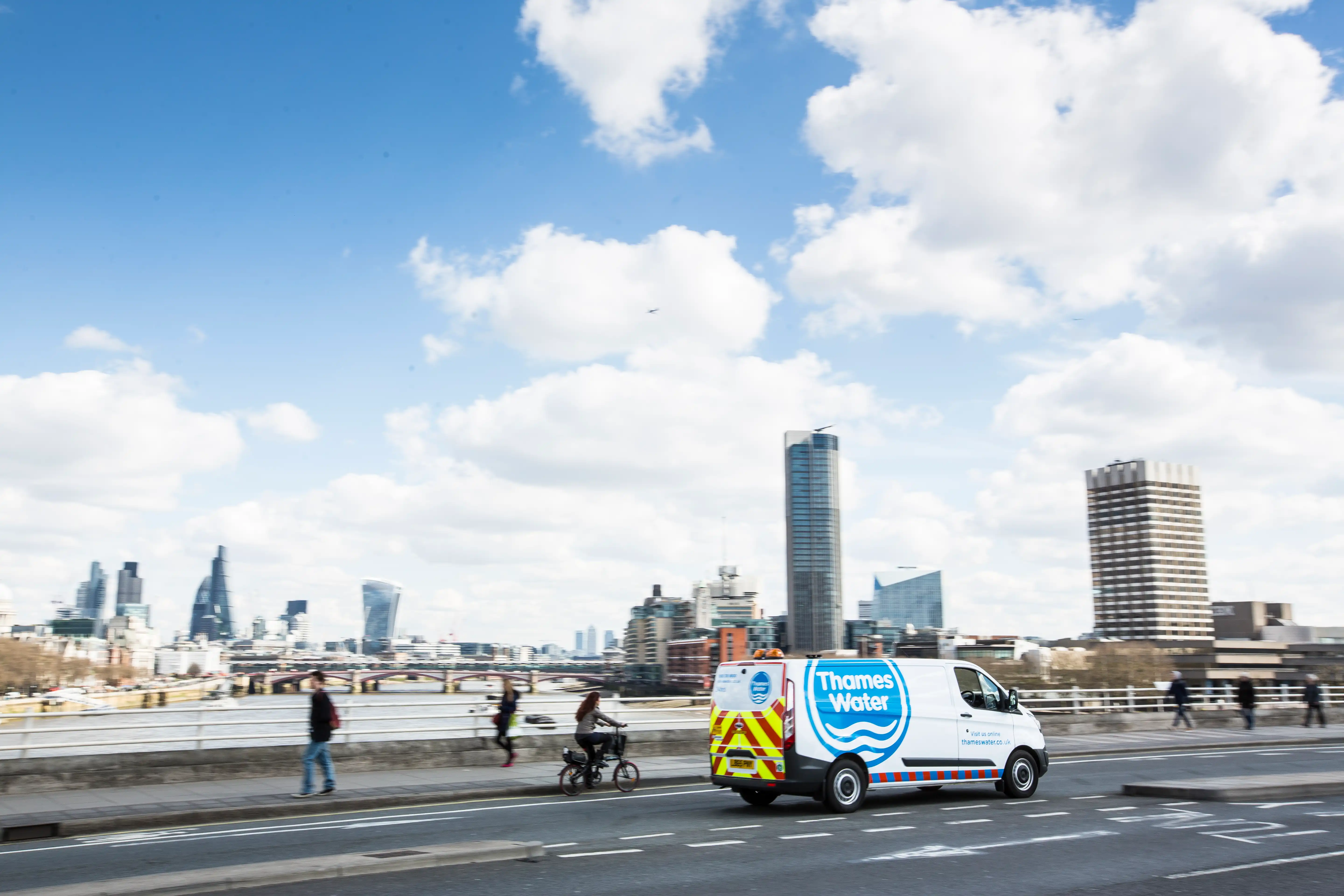
South East Strategic Reservoir Option (SESRO)
A new reservoir for the South East.
Securing safe and sustainable water supplies.
Thames Water’s Strategic Resource Options (SRO) team is responsible for developing new infrastructure solutions to help tackle the future drought scenarios which threaten London and the wider South East region.
Climate change, a growing population, the need to protect the environment by reducing the amount of water we take from our rivers and chalk streams, and the need to increase our resilience to drought are the key factors which influence our future water supply.
The proactive steps we are taking to tackle drought are driven by the findings set out in Thames Water's Water Resources Management Plan (WRMP) and the South East’s regional draft Water Resources Management Plan. The plans outline the scale of the challenges we face in both the Thames Valley and the wider South East. As this is a shared issue, we work collaboratively with other water companies in the region to identify the right solutions.
We forecast that we face a shortfall of over 1 billion litres of water every day for our customers in the next 50 years. That's enough to fill around 400 Olympic sized swimming pools.
Our plan is designed to address the needs of an increasing population, protect, and improve the environment by reducing abstraction rates from vulnerable chalk catchments, and manage the risks from an ever-changing climate, which brings hotter, drier summers.
As well as reducing leakage and our own personal consumption levels, investment in new infrastructure is vital to ensuring we can keep everyone’s taps running in the future. Thames Water’s SRO team is developing proposals for new nationally significant infrastructure projects (NSIPs), to ensure drought resilience solutions are in place when they are needed.

We know that climate change is increasing the risk of severe drought events in the UK, which are now expected to be much worse than those in 1976 and 2022.
It’s vital that we plan for future droughts now. This means learning to manage and use water more wisely and, critically, increasing our storage capacity and developing new sources of water.
A reliable water supply is usually taken for granted, but not having enough water could mean:
We have plans in place to reduce water leakage from our network and customers’ pipes, and the government has pledged policy measures to support water companies to encourage customers to use water wisely. But on their own, these initiatives are not enough. We must increase our water storage capacity and develop new sources of water. Recognising the potential scale of the future water shortage, the government, our regulators and water companies are working together to plan new large-scale water storage and supply solutions.
Every water company must prepare and maintain a Water Resources Management Plan. This plan is updated every five years and sets out how we will achieve a secure supply of water for our customers whilst protecting the environment around us. WRMPs are long-term plans that require us to forecast future scenarios using a range of data. We’ve complied with regulators’ guidance in developing and using these forecasts to form our plan.
The further ahead we look the more uncertain the future is, and we take this into account by using an adaptive planning approach. This allows us to identify all the potential options we could require.

Through Water Resources South East (WRSE), we’ve worked with the other five water companies that supply the region’s drinking water. We have a joint regional plan that addresses the pressures on our water resources. This collaborative approach means we have looked beyond our individual boundaries and are working together to secure the region’s future water supplies.
You can find out more about WRSE and the Regional Plan below.

Our WRMP24 sets out that, if we do nothing, we could face a shortfall of over 1 billion litres of water per day by 2050. To meet this shortfall, we must make the best use of the water we’ve got by tackling leakage, using water more wisely and investing in new sources of water.
We asked our customers for their views on the plan during our public consultation. We provided our response in our Statement of Response at the end of August 2023, which you can find here.
The Secretary of State for Environment, Food and Rural Affairs, the Rt Hon Steve Reed MP, has now approved the WRMP24 and we have published the plan on our website here.


A new reservoir for the South East.

A drought resilience project for London.

Considering water transfer options.